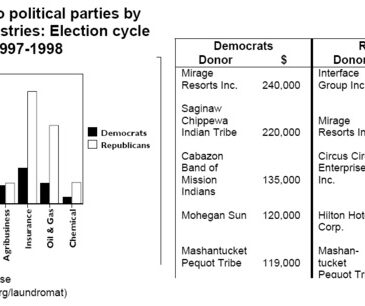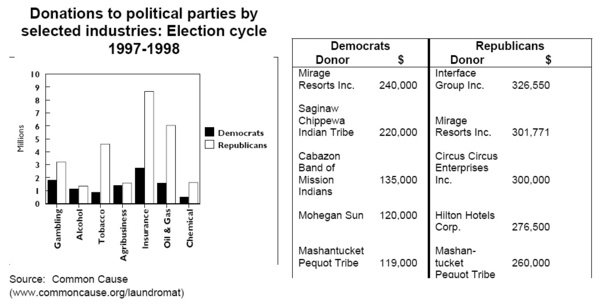Although the next American Presidential election is still 19 months away, several politicians have already announced their candidacy while Sunday morning pundits discuss the upcoming campaign season. In recent years, the issue of campaign finance reform has figured prominently in political discourse, and it is likely that the trend will continue. Much of the debate centers around so-called “soft money.” Although there are limits on the amount an individual or group can contribute to a particular candidate, there are no limits on the amounts given to a political party. Thus, although an individual may give only a limited amount to his candidate, there is no cap on the sum he contributes to the candidate’s political party. Such contributions are soft money. Soft funds, ostensibly, are supposed to support “party-building” activities rather than support the campaigns of individual candidates. Recently, however, many critics have viewed soft money as a loophole that furthers the latter purpose more than the former. Soft money comes from a variety of sources, liberal and conservative. Corporations are heavy contributors, as are labor unions and special interest groups. In the 1997-1998 election cycle, the gambling industry gave over $5 million in soft money. How do the contributions of the gaming industry compare to those of other industries? The graph below provides comparisons. The table below lists the top five gaming industry donors to each party.
This public education project is funded, in part, by The Andrews Foundation and the National Center for Responsible Gaming.





